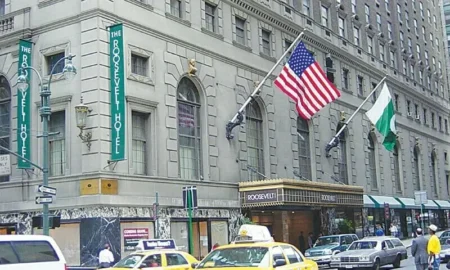BERLIN: Germany’s decision to impose border controls on all its land frontiers has triggered concerns about the future of the Schengen Agreement, one of the European Union’s most significant achievements. The controls were introduced last month as part of a broader set of law-and-order measures following a deadly terrorist attack in Solingen, where a suspected ISIS operative from Syria killed three people.
The move has sparked a ripple effect across Europe. France quickly announced plans to follow suit, with Prime Minister Michel Barnier confirming that the country could expand its own border controls “as permitted by European rules, just as Germany has done.” This has raised fears that the Schengen zone’s system of frictionless travel, which many EU citizens consider a cornerstone of the European project, could be severely weakened.
The Schengen Agreement, signed in 1985 by five countries—West Germany, France, Belgium, Luxembourg, and the Netherlands—eliminated border checks at their shared frontiers. Today, the Schengen area includes 25 of the EU’s 27 members, along with Iceland, Liechtenstein, Norway, and Switzerland. It covers nearly 4 million square kilometers and allows passport-free travel for almost 420 million people.
In recent years, however, cracks have begun to show in the Schengen system. Currently, eight EU countries—Germany, Austria, Slovenia, Italy, Denmark, Sweden, France, and Norway—have reintroduced border checks for reasons ranging from irregular migration to concerns over terrorism or security during events like the Olympic Games.
The European Commission has repeatedly stated that Schengen rules should only be suspended in extraordinary circumstances, such as when a serious threat to public order or internal security is established. A Commission spokesman reiterated that border controls must remain “exceptional, strictly limited in time, and a measure of last resort.” But in practice, these conditions are not always being met. According to Tineke Strik, a Green member of the European Parliament, “There is a big lawlessness regarding Schengen,” with many member states imposing border checks without fulfilling Brussels’ criteria.
Despite this, the European Commission has not taken any legal action against countries that have reintroduced controls. Many believe that this leniency will continue, as there is a growing tacit understanding among EU leaders that more flexibility is needed in managing border security.
Germany’s latest move was not entirely unexpected. The country has been conducting checks at its borders with Poland, the Czech Republic, and Switzerland since mid-October last year, and with Austria since 2015. Temporary border checks were also imposed during the Euro 2024 football championship last summer on its borders with Denmark, France, and the Benelux countries. Local officials note that the new measures, implemented on September 16, have not caused major disruptions on the ground. “These are smart controls,” said Benjamin Fadavian, mayor of Herzogenrath, a town on Germany’s border with the Netherlands. “It’s not like they’re putting up barriers and demanding everyone show their passports.”
However, the potential for disruption remains. Günter Gülker, of the German-Dutch Chamber of Commerce, noted that some 50,000 people cross the Dutch-German border daily, along with 100,000 trucks. He warned that any significant delays could have economic consequences, with transport companies estimating that every hour of waiting adds €100 in additional costs per vehicle.
The decision has also angered neighboring countries. Polish Prime Minister Donald Tusk called Germany’s move “unacceptable” and warned it could lead to the de facto suspension of the Schengen Agreement on a larger scale. Greek Migration Minister Nikos Panagiotopoulos also expressed concern, saying that unilateral changes to the EU’s border and asylum system risk undermining everything that has been built so far.
Despite the criticism, Europe’s right-wing populists have praised the German government’s actions. Italian Interior Ministry official Wanda Ferro remarked that “Germany is following the example of Italy” in controlling illegal immigration, while Hungarian leader Viktor Orbán congratulated German Chancellor Olaf Scholz, welcoming him “to the club.”
As more countries consider similar measures, many fear that Germany’s move could set a dangerous precedent. Uwe Conradt, mayor of Saarbrücken, a city near Germany’s border with France, warned that the border checks could have a long-term impact. “For us, it’s like having a checkpoint right in the middle of our town,” he said. “The question is, do we want a Europe of open borders, or another kind of Europe entirely?”




